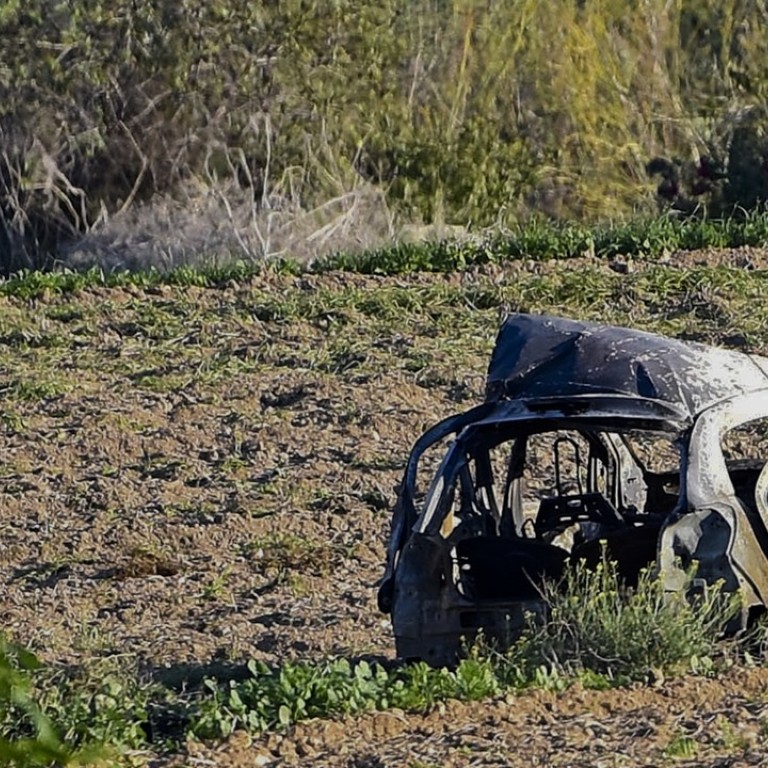
Malta car bomb kills star investigative journalist who reported on Panama Papers
Daphne Caruana Galizia was a prominent investigative reporter whose work focused on corruption
Daphne Caruana Galizia, an investigative journalist and blogger from Malta who was known for her reporting on governmental corruption, was killed in a bomb explosion near her home on Monday.
Galizia, 53, who had published a story on her blog just minutes earlier, was driving away from her rural home in Bidnija in a rented Peugeot 108 at around 3pm when the car went up in flames, according to local media reports.
Photos showed the car’s mangled shell in a field, dozens of metres away from the blast site.


Galizia spent much of her work in recent years reporting on the Panama Papers, the cache of records from a law firm in that country that detailed offshoring activities of powerful officials and companies around the world. Her reporting on allegations about the wife of Prime Minister Joseph Muscat and a shell company in Panama had caused concern during Malta’s term at the presidency of the European Union.

Her son, Matthew Caruana Galizia, said on Tuesday his mother was killed because of her work.
“My mother was assassinated because she stood between the rule of law and those who sought to violate it, like many strong journalists,” he said on Facebook.
“She was also targeted because she was the only person doing so.”
He described rushing to the scene after hearing the news, only to find the burning car and her remains.
Around 3,000 people held a silent, candle lit vigil on Monday night in Sliema, just outside the capital Valletta.
“Today, this is undoubtedly a dark and sad, sad, sad, sad day for Malta,” said family friend Luke Frendo.
“I think Daphne was not only a journalist and an absolutely fearless human being but a fourth pillar of our democracy,” Frendo said.
No suspects have been identified in the bombing. Maltese authorities were awaiting the arrival of Dutch forensic experts and US Federal Bureau of Investigation agents on Tuesday to help the investigations.
Muscat said he had ordered security services to devote maximum resources to bringing those responsible to justice.
“Everyone knows Caruana Galizia was a harsh critic of mine, both politically and personally, but nobody can justify this barbaric act in any way,” said Muscat, who had been suing her over some of her allegations.
Opposition leader Adrian Delia called her killing an attack on democracy and freedom of expression and demanded an independent inquiry.
“We will not accept an investigation by the Commissioner of Police, the Army commander or the duty magistrate, all of whom were criticised by Caruana Galizia,” he said.
Galizia’s death was widely condemned by officials and NGOs across Europe and Malta, where her relentless fixation on corruption had brought her to prominence.
“Shocked and outraged by murder of journalist Daphne Caruana Galizia,” Frans Timmermans, the first vice-president of the European Commission, said on Twitter.
“If journalists are silenced, our freedom is lost.”
Galizia started working as a journalist in the 1980s as a columnist with The Sunday Times of Malta, The Times of Malta reported. She later worked as an editor at the Malta Independent, before writing a column as well.
Her blog, Running Commentary, was launched in 2008 and is one of the most popular websites on the island nation.
Traffic to her website sometimes reached 400,000 readers, nearly equal to the country’s population. Her last story was about court testimony that pertained to allegations about Muscat’s chief of staff.
Other recent stories included a dispatch about what she described as an unpermitted zoo operated by a man she said was a friend of the prime minister and other prominent individuals in Malta.
So far this year, 27 journalists have been killed for their work, according to the Committee to Protect Journalists.
Additional reporting by Reuters

